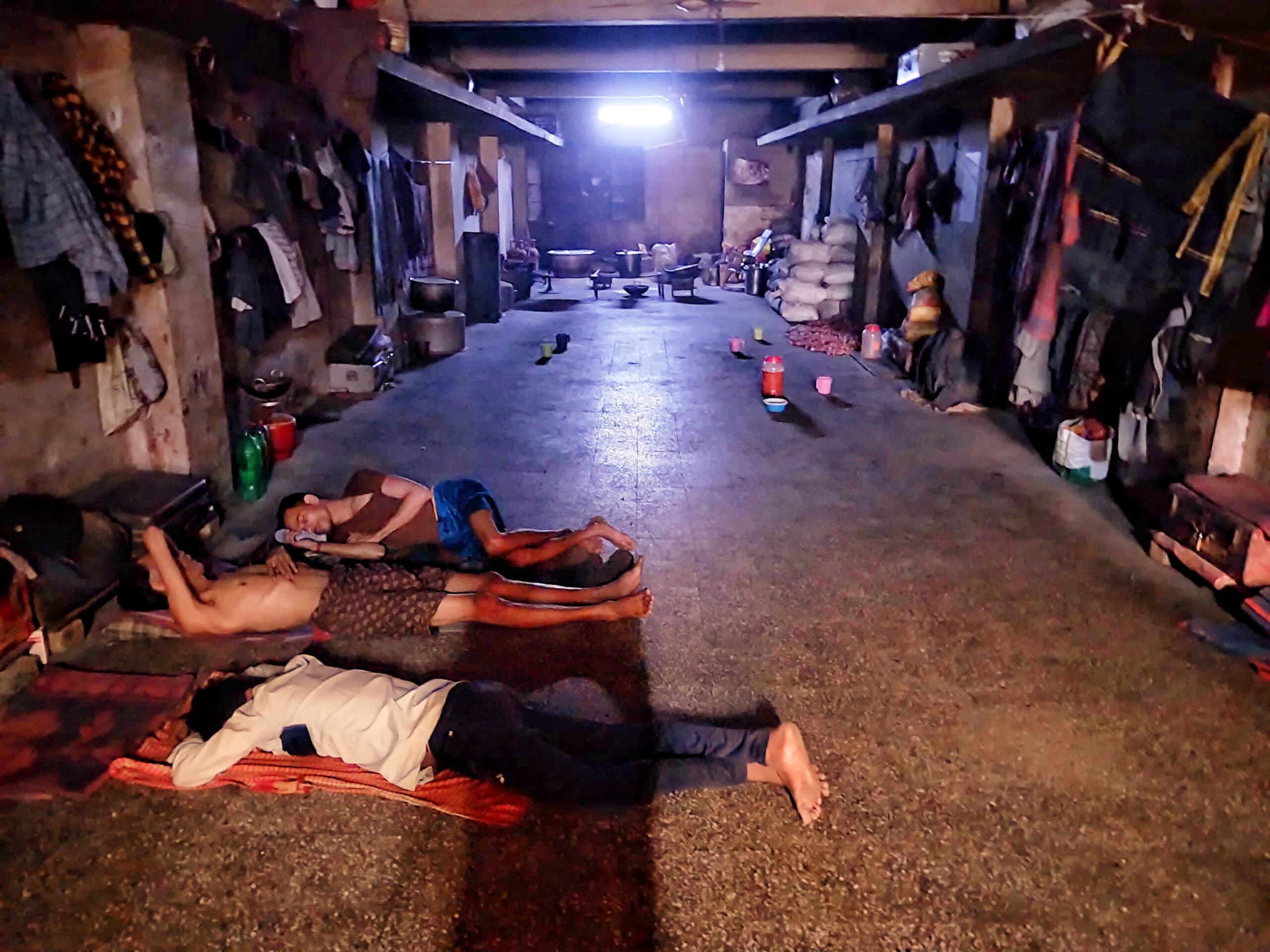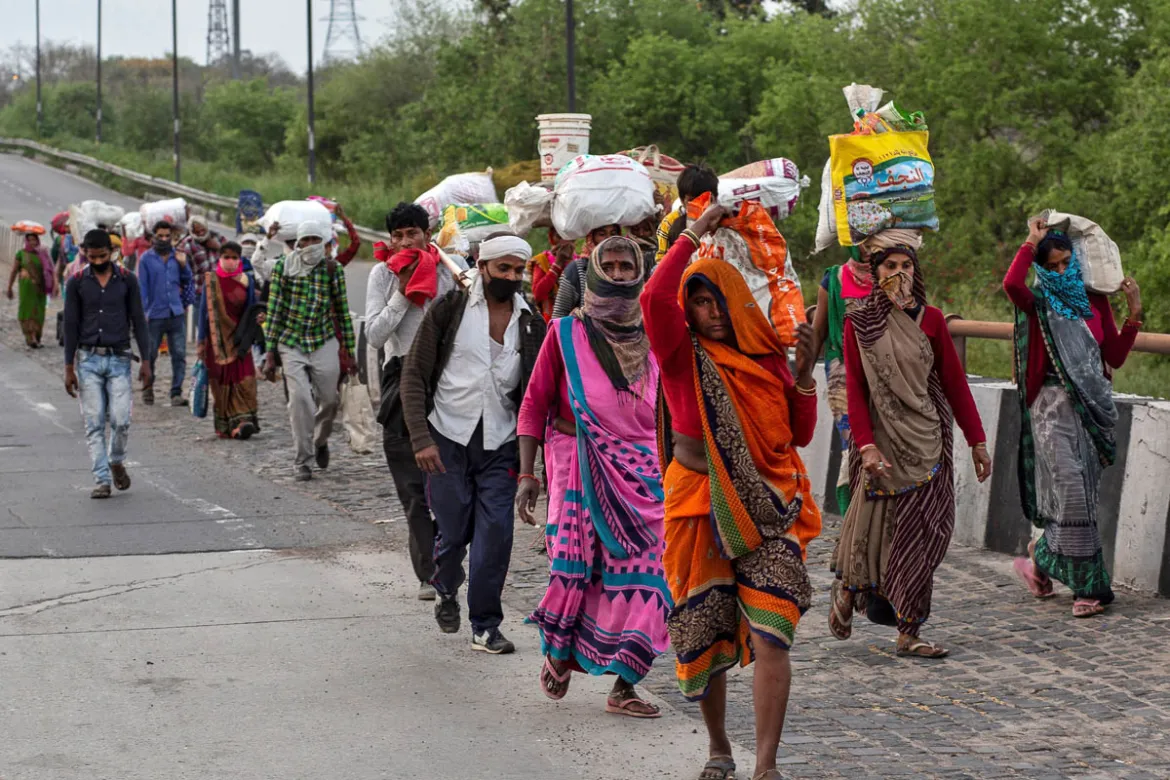Note: I work in a labour hostel project. The blog has been written after conversations with approximately 50 migrant labourers. It doesn’t guarantee any clear representative data that can speak for each migrant worker.
Migrant labourers often face numerous financial hurdles once they arrive at their work locations. These challenges influence their ability to manage their finances and meet their various obligations. Understanding these issues requires exploring real-life situations of how their financial decisions are shaped by their immediate needs, family responsibilities, and socio-economic pressures. One can debate whether the labourers are underpaid or not.
However, it is certain that their income is enough to secure their family’s future in the long term. In most cases the next generation is forced to migrate at a minor age. This continues the migration cycle.

Alcohol Consumption and Its Financial Impact
One major financial issue for some migrant labourers is their spending on alcohol. In several cases, workers have been fired for showing up to work drunk. This not only results in losing their job but also cuts off their primary source of income. On top of that, some workers spend between 2000 to 5000 rupees a month on alcohol. This substantial monthly expense can make it difficult for them to pay for essential costs like rent on time.
Such spending impacts their financial health and strains their relationships with both employers and those who provide for their accommodation.
Migration and Unsettled Debts
When migrant workers move to a new place for work, a significant part of their earnings is often sent back home to support their families. However, many workers face difficulties because they have outstanding debts. For instance, one worker delayed paying his rent because he needed to send a large sum of money back home for his son’s education in ITI (Industrial Training Institute).
This highlights how financial responsibilities, like supporting a child’s education, can affect their ability to manage and pay for their immediate needs, including housing.
Financial Strain Due to Outstanding Loans
Many migrant workers are burdened with loans they have taken out for various reasons, such as building a house, medical treatments, or paying for a family member’s wedding. These loans require regular monthly payments, which can leave workers with very little money for other expenses. As a result, they may struggle to pay for basic necessities, including their accommodation. This financial strain is evident when payments for housing and other essential services are delayed.
Personal Financial Management and Cash Flow Issues
A common issue among migrant labourers is poor management of their finances. For example, one worker was often absent from his job because he spent a lot of time wandering around. When he was dismissed from his job, he didn’t look for new employment opportunities. His financial troubles were worsened by a lack of funds. This led to the confiscation of his phone to settle his rent dues and forcing him to return to his village.
This situation illustrates how difficulties in managing money and maintaining a steady income can lead to broader financial instability.

Also Read: Migrant workers face debt, job loss and separation from families
Social Obligations and Financial Dependencies
Migrant workers often face social pressures to lend money to friends or acquaintances. When these loans are not repaid promptly, it can disrupt their ability to pay for essential expenses such as their accommodation. This situation demonstrates how obligations to others can interfere with their personal financial management and overall stability.
The migrant laborers, have no hint on managing money. The lack of knowledge of personal finance, savings, investments, formal sources of loans leads to mismanagement of money. It is not rare that a migrant labour even after working for 30 years has hardly any money in his bank account.
Some labourers use the money for constructive deeds like building a house in their village, financing their child’s education. However others do not put their money this way. Hence, the next generation is also forced to migrate early and spend their life working in tough conditions and living in unhygienic spaces.
Conclusion
The financial decisions and challenges faced by migrant laborers at their work destinations are deeply connected to their habits, personal and family responsibilities. Managing debts, supporting family members, and dealing with personal habits like alcohol consumption can all significantly impact their financial stability. To address these issues effectively, there needs to be a comprehensive approach that includes financial education, improved support systems, and empathy from employers. This will help migrant workers better manage their finances and improve their overall well-being.




0 Comments